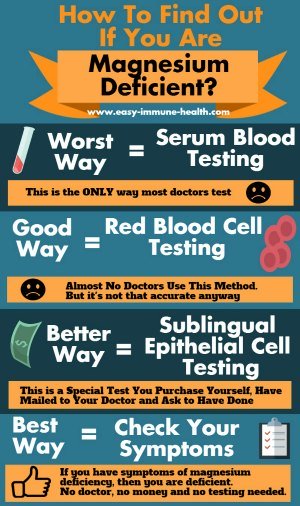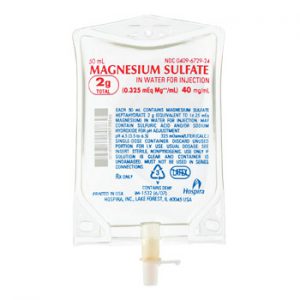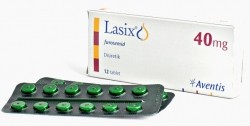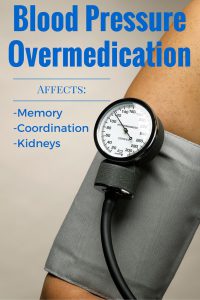 How many of you have gone to the doctor and been told you should have a Magnesium (Mg) deficiency test? Not many I bet.
How many of you have gone to the doctor and been told you should have a Magnesium (Mg) deficiency test? Not many I bet.
So out of those of you that’s had a test, how many were given the Total Serum Mg Test? All of you I suspect.
And of those of you who had the serum test, how many of you were found to be Mg deficient? One, two, none?
So, you’re not Mg deficient, the test says so. What else could it be. Perhaps you are..uhm..calcium deficient. There’s a couple of clinical tests for that and if you are unfortunate enough to be one of those that reacts to these tests, your doctor could come to the conclusion that you are in fact calcium deficient.
A clinical test
So lets look at the common Mg testing procedures in the UK and the US. There are a number of tests that can be used for Mg deficiency and 2 common clinical tests that can be done in the doctor’s surgery. The problem with these clinical tests is they indicate either a Ca or Mg deficiency. Because the tests cannot distinguish between which mineral is deficient and Mg deficiency is deemed to be rare , if the test is positive, it is Ca deficiency that will be presumed and a suitable supplement or diet plan prescribed. As a result, a Mg deficiency, which is more likely to be the case, is overlooked, exacerbated and depleted even lower, causing more problems and symptoms.
, if the test is positive, it is Ca deficiency that will be presumed and a suitable supplement or diet plan prescribed. As a result, a Mg deficiency, which is more likely to be the case, is overlooked, exacerbated and depleted even lower, causing more problems and symptoms.
For those interested, the two clinical tests are
- Chvostek’s sign which is a twitching of facial muscles as a response to tapping a facial nerve in front of the ear.
- Trousseau’s sign which causes spasm in hand muscles after applying a blood pressure cuff to the forearm below the elbow for 3 minutes, at a level above systolic pressure.
The totally useless total serum Mg test
This is the most commonly used Mg test in the UK and the US. Unfortunately, it is next to useless and invariably gives a false positive result.
 It’s no wonder that most doctors think it is very rare to be Mg deficient. They get this duff information from the results of serum tests. The tests comes back normal and patients’ records are updated to reflect this result.
It’s no wonder that most doctors think it is very rare to be Mg deficient. They get this duff information from the results of serum tests. The tests comes back normal and patients’ records are updated to reflect this result.
This is what happens when dogma and an inability to change, encumbers the medical profession, making a profound difference to a patient’s diagnosis! This mis-diagnosis could cause incalculable distress and misery for a patient that may have a simple Mg deficiency. So patients are told that Mg levels are normal and they dismiss the fact that a Mg deficiency could be the cause of their condition.
So why is this?
Less than 1% of our body’s total Mg can be measured in blood serum. Most of our Mg is found in bones – around 60% and inside muscle and other cells – around 40%. If magnesium drops in the extracellular fluids, there’s a danger of a heart event. Thus, the body makes sure that the amount of Mg in blood fluids is stable at all times, even when bodywide levels are low. This means, even if you are deficient in this mineral, your body will keep your blood serum magnesium level normal. So the antiquated blood serum test has no value in showing your real Mg levels. In fact, it is positively dangerous because it gives false information and consequently the wrong diagnosis can result, with the wrong treatment and possible improper use of prescription drugs.
 The RBC (red blood cell) test
The RBC (red blood cell) test
Every cell in our body contains Mg and that includes red blood cells. About 40% of Mg is found in our cells so using red blood cells is deemed to be a more accurate measuring procedure. Even so, it’s still not testing the whole of the body’s Mg levels. Despite this not being an ideal method, it is marginally better than the serum test. Why the rbc test is not done in favour of the serum test, is a mystery. By the way, you can request a test from RequestATest.com if you want to get yourself tested, but don’t rely too much on the result!
Educate your doctor?
Your doctor could arrange a rbc test for you if you can convince him of the folly of a serum test. This could be a tricky conversation as many doctors seem to get tetchy if questioned or informed of something they don’t know already. Many patients are nervous about questioning their doctor but this is your health and you have a right to query your treatment and any aspect of your diagnosis. Some doctors though, are grateful for the facts and are genuinly pleased when patients take an interest in their own health.
The EXATest
The third test I want to talk about is the EXATest. This is a test devised by IntraCellular Diagnostics and is used to identify certain minerals within a cell. The test is very expensive so check your insurance or Medicare and see if they cover it.
 How it works
How it works
This test uses cells scraped from the inside of your mouth. Not in the usual place like for DNA testing ie. the inside of the cheek, but rather from under the tongue close to the bottom teeth. It is called a ‘buccal cell smear test’. Sampling kits are sent to your doctor’s surgery and he then takes a smear using a wooden spatula. It takes no longer than a minute. The scraping is carefully placed onto a microscope slide, left to dry and sent back to the EXATest company. The problem with the EXATest is not many doctor’s even know about it, let alone offer it.
The serum versus the EXATest
Quite by accident, I came across a site about AF (atrial fibrillation). It is run by Travis who suffers from AF. He already knows about the benefits of Mg and that most AFibbers are deficient and asked his doctor for a test, done in early 2013. The test result was normal. He then returned to be tested again in early 2015. The test came back normal, again.
 He had heard of the EXATest in 2014 and decided to get it done. After much searching, he found a naturopath that offered the test. The total fee, was a little over $700 but I understand that the cost has come down markedly since then. The result of his test, done just two months after the 2nd serum test, showed him to be Mg deficient, well below the normal range, despite the serum test showing twice that he was in the middle of the normal range.
He had heard of the EXATest in 2014 and decided to get it done. After much searching, he found a naturopath that offered the test. The total fee, was a little over $700 but I understand that the cost has come down markedly since then. The result of his test, done just two months after the 2nd serum test, showed him to be Mg deficient, well below the normal range, despite the serum test showing twice that he was in the middle of the normal range.
Other tests?
There are a couple more tests that can be done ie. The Challenge Test and the Blood Ionized Mg Test but the challenge test is inconvenient and needs constant monitoring and the ionizing test is limited to the inventors, the Alturas’ laboratory and for research purposes, at the present time.
So what’s the answer?
Are these false positive results of the serum test the reason why the medical profession think this deficiency is rare? Could it be that physicians are so used to the same old, same old that they are missing something vital to the health of us all? Is this lack of knowledge actually compromising accurate diagnoses and treatments?
 In my mind, it would be better not to test at all and just give the patient some good quality Mg. Why is the medical profession not listening to the research that has proven that a large majority of the population is Mg deficient. After all it is not a drug, it is a natural mineral that we all need; us, all other animals and all plant life. Even our farm animals are treated better than us with respect to Mg. Ever heard of ‘grass tetany’?
In my mind, it would be better not to test at all and just give the patient some good quality Mg. Why is the medical profession not listening to the research that has proven that a large majority of the population is Mg deficient. After all it is not a drug, it is a natural mineral that we all need; us, all other animals and all plant life. Even our farm animals are treated better than us with respect to Mg. Ever heard of ‘grass tetany’?
Why are we not informed?
If the whole population was informed about the indispensable need for Mg it could alleviate a plethora of symptoms, illnesses and cardiovascular problems! It could also save tax payers lives, tax payers money and tax payers misery!
How would you feel without it?
Here are just a few symptoms of Mg deficiency. Remember, everyone is different and each of us will suffer different symptoms in varying degrees of severity. All the conditions listed below have been endured and tolerated by countless sufferers in varying degrees over decades. Mg is vital for recovery from any illness and condition and guards against further disease. The majority of the conditions listed below are not induced by genetics.
 ADHD, anxiety, arrhythmia, asthma, atherosclerosis, atrial fibrillation, brain fog, chronic fatigue syndrome, confusion, constipation, cystitis, depression, diabetes, fibrositis, fibromyalgia, headaches, heart disease, high blood pressure, hyperactivity, hypoglycemia, insomnia, irritable bowel syndrome, kidney disease, liver disease, memory loss, migraines, mitral valve prolapse, muscle spasms, muscle weakness, nerve problems, numb hands and feet, osteoporosis, polycystic ovarian disease, preeclampsia, raynaud’s syndrome, restless legs syndrome, shortness of breath, seizures, stroke, syndrome X, tooth decay, tremor, twitches and tics, vertigo.
ADHD, anxiety, arrhythmia, asthma, atherosclerosis, atrial fibrillation, brain fog, chronic fatigue syndrome, confusion, constipation, cystitis, depression, diabetes, fibrositis, fibromyalgia, headaches, heart disease, high blood pressure, hyperactivity, hypoglycemia, insomnia, irritable bowel syndrome, kidney disease, liver disease, memory loss, migraines, mitral valve prolapse, muscle spasms, muscle weakness, nerve problems, numb hands and feet, osteoporosis, polycystic ovarian disease, preeclampsia, raynaud’s syndrome, restless legs syndrome, shortness of breath, seizures, stroke, syndrome X, tooth decay, tremor, twitches and tics, vertigo.
Perhaps it’s because…
Well, there’s one big drawback with using Mg. It won’t help Big Pharma’s coffers!! Businesses are not interested in a product that doesn’t make money and Mg is a cheap mineral that can’t be patented. Profits will be in jeopardy if patients start getting well and recovering from diseases. If you think Big Pharma’s prime concern is the welfare of its paying customers, think again. Money comes first! Therefore, Mg will not be in widespread use anytime soon from those medics controlled by the pharmaceutical industry.
 Take control
Take control
There’s only one answer. Take control. Do your own research. A good start would be replete your body with Mg.
 Many people ask me which is the best magnesium (Mg) supplement to take and I always answer Mg Chloride (MgCl2). Then there’s the inevitable second question. What is Mg Chloride? Before I can answer there is often a 3rd question. Why do you recommend Mg Chloride rather than any other Mg supplement?
Many people ask me which is the best magnesium (Mg) supplement to take and I always answer Mg Chloride (MgCl2). Then there’s the inevitable second question. What is Mg Chloride? Before I can answer there is often a 3rd question. Why do you recommend Mg Chloride rather than any other Mg supplement? Not sure?
Not sure?
 effect. OK if you want a clear out! I cannot find the official SCV of Mg oxide or some of the other salts, but I know the SCV of Mg oxide is high and is therefore strongly bonded to oxygen. Unfortunately, Mg oxide is commonly added as the dietary source of magnesium to foods and supplements, because it’s cheap. This likely produces dietary deficiencies resulting in poor health and a reduced life span. Mg oxide is at most only 4% bio available.
effect. OK if you want a clear out! I cannot find the official SCV of Mg oxide or some of the other salts, but I know the SCV of Mg oxide is high and is therefore strongly bonded to oxygen. Unfortunately, Mg oxide is commonly added as the dietary source of magnesium to foods and supplements, because it’s cheap. This likely produces dietary deficiencies resulting in poor health and a reduced life span. Mg oxide is at most only 4% bio available. Mg Sulphate & Pregnancy
Mg Sulphate & Pregnancy MgCl2 supplements on the market
MgCl2 supplements on the market How to make up MgCl2 solution
How to make up MgCl2 solution To finish off this 4 part article Drugs! are you on a diuretic, I will show you some questions written by worried patients prescribed diuretics. If you’re on this class of drugs, you may find a question here relating to you and problems you are encountering. As Furosemide is a diuretic that is one of the most prescribed drugs in the world, questions about this particular drug will be covered here.
To finish off this 4 part article Drugs! are you on a diuretic, I will show you some questions written by worried patients prescribed diuretics. If you’re on this class of drugs, you may find a question here relating to you and problems you are encountering. As Furosemide is a diuretic that is one of the most prescribed drugs in the world, questions about this particular drug will be covered here.  Furosemide (Lasix) – A loop diuretic
Furosemide (Lasix) – A loop diuretic about this drug. My husband fortunately works close to home; he sometimes urinates on himself because he can’t always make it to the bathroom in time. He does operate heavy equipment at times and the dizziness thing is scary too. Please tell us more about furosemide (Lasix) side effects.”
about this drug. My husband fortunately works close to home; he sometimes urinates on himself because he can’t always make it to the bathroom in time. He does operate heavy equipment at times and the dizziness thing is scary too. Please tell us more about furosemide (Lasix) side effects.” Overactive bladder
Overactive bladder whilst suffering the side effects of dizziness or vertigo is an accident waiting to happen. This just confirms that this doctor failed in his duty to make sure his patient had the best possible medication for his particular lifestyle. This is a dereliction of duty in my mind, apart from the obvious misery it is causing the patient and his wife.
whilst suffering the side effects of dizziness or vertigo is an accident waiting to happen. This just confirms that this doctor failed in his duty to make sure his patient had the best possible medication for his particular lifestyle. This is a dereliction of duty in my mind, apart from the obvious misery it is causing the patient and his wife. “My mother had swelling in her ankles, she only weighed 74 lbs. Her Dr. prescribed her lasix 40 mg.
She took one time day. We had home health nursing too. Mom was feeling weaker loss of appetite. They couldn’t figure out what’s wrong. About week Mom says let’s go to Hosp. we waiting for results, her body had no sodium.
Dr. didn’t prescribe potassium with her lasix…we were in Hosp 2 wks . We were home 2wks. She never recovered from that. I lost her…do u believe Dr. is responsible…I do.”
“My mother had swelling in her ankles, she only weighed 74 lbs. Her Dr. prescribed her lasix 40 mg.
She took one time day. We had home health nursing too. Mom was feeling weaker loss of appetite. They couldn’t figure out what’s wrong. About week Mom says let’s go to Hosp. we waiting for results, her body had no sodium.
Dr. didn’t prescribe potassium with her lasix…we were in Hosp 2 wks . We were home 2wks. She never recovered from that. I lost her…do u believe Dr. is responsible…I do.”
 Are doctors in control?
Are doctors in control?

 The possibility of hearing loss, which can be irreversible, is on the list of side effects for this drug. It should be stressed by all doctors, the serious side effects this drug can cause including kidney damage and irreversible hearing loss and many more. I’m sure if this patient had been told about the side effects, she would have requested a different medication. But she hasn’t been given the option. Because of this lack of information, she could be permanently hearing impaired!
The possibility of hearing loss, which can be irreversible, is on the list of side effects for this drug. It should be stressed by all doctors, the serious side effects this drug can cause including kidney damage and irreversible hearing loss and many more. I’m sure if this patient had been told about the side effects, she would have requested a different medication. But she hasn’t been given the option. Because of this lack of information, she could be permanently hearing impaired! Husband changed into a ‘Zombie’
Husband changed into a ‘Zombie’ something else instead and reducing the amounts of other drugs, my husband miraculously became alive again. He is now 86 years old and has survived two life-threatening surgeries. He is now very active and building things like he used to that he loved to do. He does many tasks and does not want to sleep all day, eats well and does so many other things…
something else instead and reducing the amounts of other drugs, my husband miraculously became alive again. He is now 86 years old and has survived two life-threatening surgeries. He is now very active and building things like he used to that he loved to do. He does many tasks and does not want to sleep all day, eats well and does so many other things… Prime example of over prescribing
Prime example of over prescribing From the horse’s mouth!
From the horse’s mouth!
 “I have these cramps so bad and gout, now I see it came from the Lasix as a side effect and my doctor just upped my dosage to 40 from 20. I am swollen in the legs and feet and I think my water pill isn’t working. I don’t think I’ll up the dosage but stop generic brand and opt for another brand of water pill. These doctors are not telling us everything. The gout is not hereditary, it came from the water pill and so did the ringing in my ears and blurry vision.”
“I have these cramps so bad and gout, now I see it came from the Lasix as a side effect and my doctor just upped my dosage to 40 from 20. I am swollen in the legs and feet and I think my water pill isn’t working. I don’t think I’ll up the dosage but stop generic brand and opt for another brand of water pill. These doctors are not telling us everything. The gout is not hereditary, it came from the water pill and so did the ringing in my ears and blurry vision.”
 How to treat oedema
How to treat oedema
 Start Slow
Start Slow Digestion
Digestion This way of eating teaches you a lot about your own body and how different foods have different effects on you. I have come to love good foods like brocolli, nuts and berries. I now don’t want to eat bread and cakes but I do eat chocolate every evening, it is the last food I have at 8pm. I try and eat the darker variety but occassionally have a few squares of milk chocolate. I also indulge in a small glass of wine whilst I’m preparing dinner.
This way of eating teaches you a lot about your own body and how different foods have different effects on you. I have come to love good foods like brocolli, nuts and berries. I now don’t want to eat bread and cakes but I do eat chocolate every evening, it is the last food I have at 8pm. I try and eat the darker variety but occassionally have a few squares of milk chocolate. I also indulge in a small glass of wine whilst I’m preparing dinner.
 The super veggie is broccoli from the cruciferous family. Cruciferous veggies are the best! Eat grass fed meat if possible and definitely avoid meat from intensively farmed animals and farmed fish. I know the best foods are the dearest but try and eat as much fresh organic food as you can afford and make an effort to do your own cooking. That way you will know exactly what goes into your meals.
The super veggie is broccoli from the cruciferous family. Cruciferous veggies are the best! Eat grass fed meat if possible and definitely avoid meat from intensively farmed animals and farmed fish. I know the best foods are the dearest but try and eat as much fresh organic food as you can afford and make an effort to do your own cooking. That way you will know exactly what goes into your meals. To avoid an imbalance, make sure your intake of Mg’s sister mineral Ca is not excessive. Don’t take Ca antacids such as ‘Tums’. These antacids allow you to consume 3000mg of Ca each day. No way will you be able to balance that with 3000mg of Mg, and that doesn’t include your normal daily consumption of Ca which is fortified in many foods by the food manufacturers. Excess Ca is dangerous!
To avoid an imbalance, make sure your intake of Mg’s sister mineral Ca is not excessive. Don’t take Ca antacids such as ‘Tums’. These antacids allow you to consume 3000mg of Ca each day. No way will you be able to balance that with 3000mg of Mg, and that doesn’t include your normal daily consumption of Ca which is fortified in many foods by the food manufacturers. Excess Ca is dangerous! We all get old
We all get old you succumb. It will be put down to genetics and/or old age. Your bones will suffer and Ca will be allowed to run riot in your soft tissue causing calcifications where it settles. You will become stiff, achey, depressed and will slowly lose your quality of life. Just have a think for a moment and wonder… How many pharmaceutical drugs do you know that actually cure a condition?
you succumb. It will be put down to genetics and/or old age. Your bones will suffer and Ca will be allowed to run riot in your soft tissue causing calcifications where it settles. You will become stiff, achey, depressed and will slowly lose your quality of life. Just have a think for a moment and wonder… How many pharmaceutical drugs do you know that actually cure a condition? This is Part 2 of Drugs! Are you on diuretics?
This is Part 2 of Drugs! Are you on diuretics? 
 120/80 is just an average
120/80 is just an average
 Kidneys have to deal with all drugs
Kidneys have to deal with all drugs

 Diuretics? Why not try walking!
Diuretics? Why not try walking!